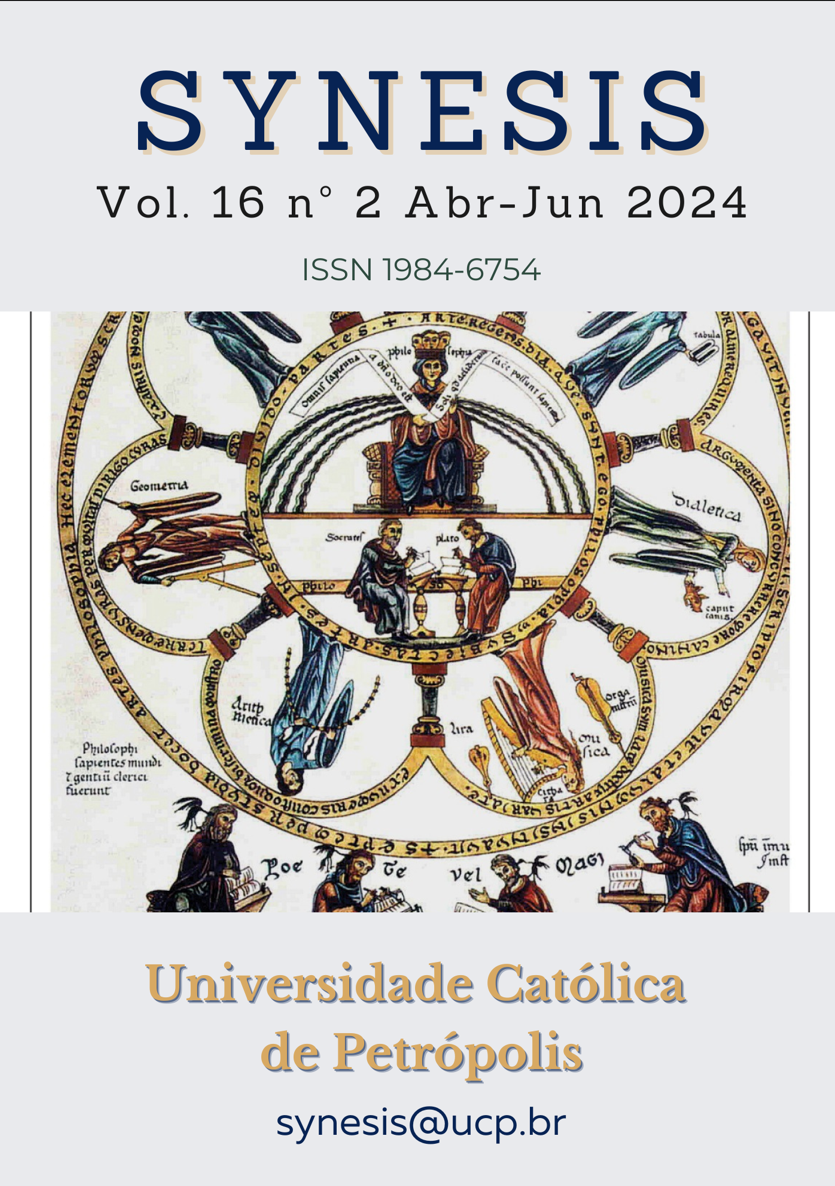Resumo
Usando o exemplo da análise da educação orientada queer, foi demonstrado que a filosofia queer pode ser adoptada como uma abordagem filosófica básica não só quando se considera a questão do género, a sua mudança e pluralidade, mas também quando se considera qualquer situação de identidade social múltipla. . Foi revelado que abordar questões queer no âmbito do desenvolvimento da educação de género abriu uma oportunidade para abordar questões muito mais amplas de justiça social na educação, e não apenas a protecção dos direitos das minorias de género. A pedagogia queer cria melhores oportunidades para descobrir e criar livremente a identidade de uma pessoa como uma identidade múltipla – com base na consideração de género, raça, nação, idade, deficiência, classe, religião, bem como outras características anteriormente desconhecidas e incognoscíveis de identidade pessoal. A aplicação da filosofia queer como metodologia das teorias queer na educação revela os pontos fortes e fracos dos princípios fundamentais da filosofia queer propostos por Kim Q. Hall – lembrança crítica, contrabando e recrutamento. Os pontos fortes são a criação de uma atmosfera de normatividade múltipla; resolver outras questões de justiça social na educação, bem como outras tarefas de autodescoberta; o envolvimento de todas as formas, tipos e componentes conhecidos e ainda desconhecidos da identidade de uma pessoa. As fraquezas são o perigo de ser apanhado na crítica de velhas formas de identidade e perder o foco na criação de novas ou na aceitação de todas as novas versões de identidade sem avaliá-las criticamente; dependência residual da ênfase na educação de género como prioridade.
Referências
Bauman, Zygmunt. Liquid Modernity. Cambridge: Polity, 2000.
BOICHENKO, MYKHAILO; SHEVCHENKO ZOYA; RYLOVA, OLHA; KARPENKO, IVAN; GUZHVA ALLA. Conceptual levels of the managing of gender conflicts in the field of education in the framework of sustainable development of society. SHS Web of Conferences 141, 03013. 2022. https://doi.org/10.1051/shsconf/202214103013
BOYCHENKO, M. I., SHEVCHENKO, Z. V., PITULEY, V. V. The role of biological and social factors in determining gender identity. Anthropological measurements of philosophical research, v. 15, p. 11-21. 2019. https://doi.org/10.15802/ampr.v0i15.169468
Butler, Judith. Gender Trouble: Feminism and the Subversion of Identity. New York and London: Taylor & Francis, 2011.
Dubbs, Christopher H. A queer turn in mathematics education research: centering the experience of marginalized queer students. In: Wood, M. B.; Turner, E. E.; Civil, M.; ELI, J. A. Proceedings of the 38th annual meeting of the North American Chapter of the International Group for the Psychology of Mathematics Education. Tucson, AZ: The University of Arizona, 2016. p. 1041-1048.
Ferguson, R. A. One-Dimensional Queer. USA: Polity, 2018.
Foucault, Michel. The History of Sexuality. Volume 1, An Introduction. Translated from the French by Robert Hurley. New York: Pantheon Books. 1978.
GREEN, A. I. Queer Theory and Sociology: Locating the Subject and the Self in Sexuality Studies. Sociological Theory, v. 25, n.1, p. 26–45. 2007. https://doi.org/10.1111/j.1467-9558.2007.00296.x
GRETEMAN, ADAM J. Helping Kids Turn out Queer: Queer Theory in Art Education. Studies in Art Education, v. 58, n. 3, p. 195–205. 2017. https://doi.org/10.1080/00393541.2017.1331089
Hall, K. Q. Queering Philosophy. USA: Rowman & Littlefield Publishing Group, 2022.
hicks, b. l. To Do This Discussion Differently: Drawing Queerness in Education. Research in the Teaching of English, v. 55, n. 2, p. 187-190. 2020. Available at: https://www.jstor.org/stable/27116898
Ingrey, J. C. Queer Studies in Education. In: Oxford research encyclopaedia of education. 2018. https://doi.org/10.1093/acrefore/9780190264093.013.249
Kant, Immanuel. Kritik der reinen Vernunft. In: Kants Gesammelte Schriften. Berlin, Reimer, 1904. Bd.3.
Linville, Darla. Introduction: Queering Education. In: Linville, D. Queering Education: Pedagogy, Curriculum, Policy. Occasional Paper Series 37. Bank Street College of Education, 2017, p. 4-12. https://doi.org/10.58295/2375-3668.1176
MARCUS, SHARON. Queer Theory for Everyone: A Review Essay. Signs, v. 31, n. 1, p. 191–218. 2005. https://doi.org/10.1086/432743
NELSON, CYNTHIA. Why Queer Theory is Useful in Teaching. Journal of Gay & Lesbian Social Services, v. 14, n. 2, 43-53. 2002. https://doi.org/10.1300/J041v14n02_04.
Pennell, Summer M. Queer Theory/Pedagogy and Social Justice Education. In: Papa, R. Handbook on Promoting Social Justice in Education. Springer, Cham, 2020. https://doi.org/10.1007/978-3-030-14625-2_103
Pennell, Summer M. Queer Transgressive Cultural Capital. In: Rodriguez, Nelson M.; Martino, Wayne J.; Ingrey, Jennifer C.; Brockenbrough, Edward. Critical Concepts in Queer Studies and Education An International Guide for the Twenty-First Century. New York: Palgrave McMillan, 2016. p. 319-328.
Shelton, Stephanie. “White people are gay, but so are some of my kids”: Examining the intersections of race, sexuality, and gender. In: Linville, D. Queering Education: Pedagogy, Curriculum, Policy. Occasional Paper Series 37. Bank Street College of Education, 2017, p. 109-129. https://doi.org/10.58295/2375-3668.1089
Sedgwick, E. K. Epistemology of the Closet. Great Britain: University of California Press. 1990.
SHEVCHENKO, Z. V.; FIALKO, N. A. The normativity of multiple social identity: from motivation to legitimacy. Anthropological Measurements of Philosophical Research, v. 22, p. 58–66. 2022. https://doi.org/10.15802/ampr.v0i22.271328
STOCKBRIDGE, K.; BLEASDALE, J. Introduction: At the Intersection of Queerness and K-12 Education. Journal of Homosexuality, v. 69, n. 12, p. 2003–2006. 2022. https://doi.org/10.1080/00918369.2021.1984784
Thomas, W. I.; Thomas, D. S. The Child in America: Behavior Problems and Programs. New York: A.A.Knopf, 1928.
Thomas-Reid, Matthew. Queer Pedagogical Theory. In: Oxford Research Encyclopedias: Education. 2021. https://doi.org/10.1093/acrefore/9780190264093.013.1398
RIDEOUT, A. M. (2023). Equity in Music Education: Incorporating Queer Theory into Culturally Responsive Teaching. Music Educators Journal, v. 110, n. 2, p. 59-63. https://doi.org/10.1177/00274321231218585
UNWIN, S.; STARCEVICH, R.; LEMBO, S.; DOBSON, M. On becoming a queer educator: reflections on queer perspectives and approaches in initial teacher education. Continuum, p. 1–18. 2024. https://doi.org/10.1080/10304312.2024.2335505

Este trabalho está licenciado sob uma licença Creative Commons Attribution-NonCommercial-NoDerivatives 4.0 International License.
Copyright (c) 2024 Synesis (ISSN 1984-6754)

